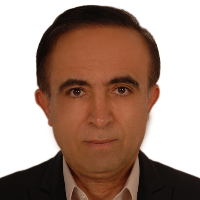Sociological Analysis of Economic Corruption from the Perspective of Professors of Tehran Universities
Economic corruption is a phenomenon that has various social, economic and political roots, and emphasizing one cause obscures the truth of corruption. The economy of any country is considered as a series of nerves and vital arteries, and the presence of complications in the economy leads to problems for the entire vital arteries and related subsystems. On the other hand, it is obvious that all societies are made up of different subsystems and these subsystems in conjunction with each other objectify the process of survival and continuity of governments. Each of the different subsystems in the process of development and change, can suffer from all kinds of complications and injuries that prevent them from performing their main functions over time. Economic corruption is one of these complications, which not only disrupts the functioning of the economic subsystem, but also challenges the functioning of the rest of the subsystem.According to the report of Transparency International Organization (2021), Iran is ranked 150th among 180 countries and its corruption index is 2.5 out of 10, which is a deterioration compared to the previous year. Surveys and research confirm the existence of economic corruption in the country. It can be said that corruption has been and continues to be the work of governments and that any effort to improve the situation in society and make it free of corruption must be based on planning at all economic, social and political levels. Meanwhile, referring to and citing opinions of professors and thinkers can play an important role in understanding what corruption is, how it occurs and how to control it. The importance of this topic was clear to the researchers before they began this study, as were the gaps in this area. Therefore, they considered conducting this research as a reference point to use the opinions of university professors as leaders of science and thought and undertook to clarify the ambiguous path of economic corruption. To achieve this goal, professors were selected who were experts in the field or had related expertise in areas such as political science, sociology, and economics. This research was also based on the premise that by referring to the opinions of academic elites and expert professors, it is possible to better understand the nature and causes of the prevalence of corruption in society so that the practical results can be used at various levels of policy making.
Method:
The method of this research is qualitative. Data were collected through interviews and analyzed using thematic analysis. In this research, after conducting the interviews, all the concepts related to the concept of economic corruption were noted down on several sheets of paper and compiled in a table. Then, all related concepts were entered into the table and analyzed row by row.
From the point of view of the participants of this research, the components that constitute economic corruption, such as the low cost of corruption, the ambiguity and conflict in the laws, the political structure, the lack of transparency, the state economy, the normalization of corruption, and the weakness of the judicial system, which mostly indicate weak governance in the country and thus the institutionalization of corruption in the country, leading to the stability of economic corruption.
The result of this research was the professors’ special view of the causes and relationships of the emergence of economic corruption—a situation where poor governance has contributed to the institutionalization and spread of corruption. In order to curb corruption, it is necessary to pay attention to the formation of good governance in the country and to fight corruption in addition to dealing with the corrupt. To fight it, one should take into account all the historical, cultural, social and political factors involved.
- حق عضویت دریافتی صرف حمایت از نشریات عضو و نگهداری، تکمیل و توسعه مگیران میشود.
- پرداخت حق اشتراک و دانلود مقالات اجازه بازنشر آن در سایر رسانههای چاپی و دیجیتال را به کاربر نمیدهد.




